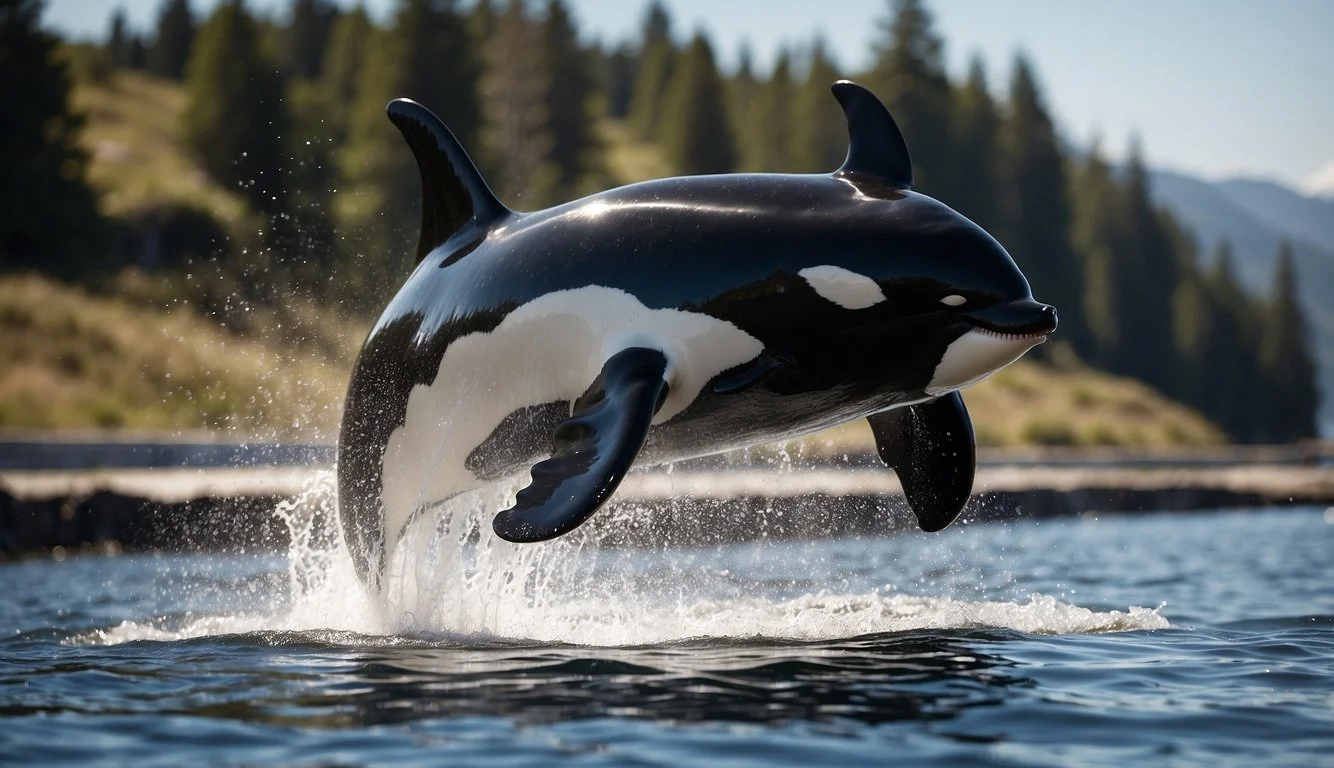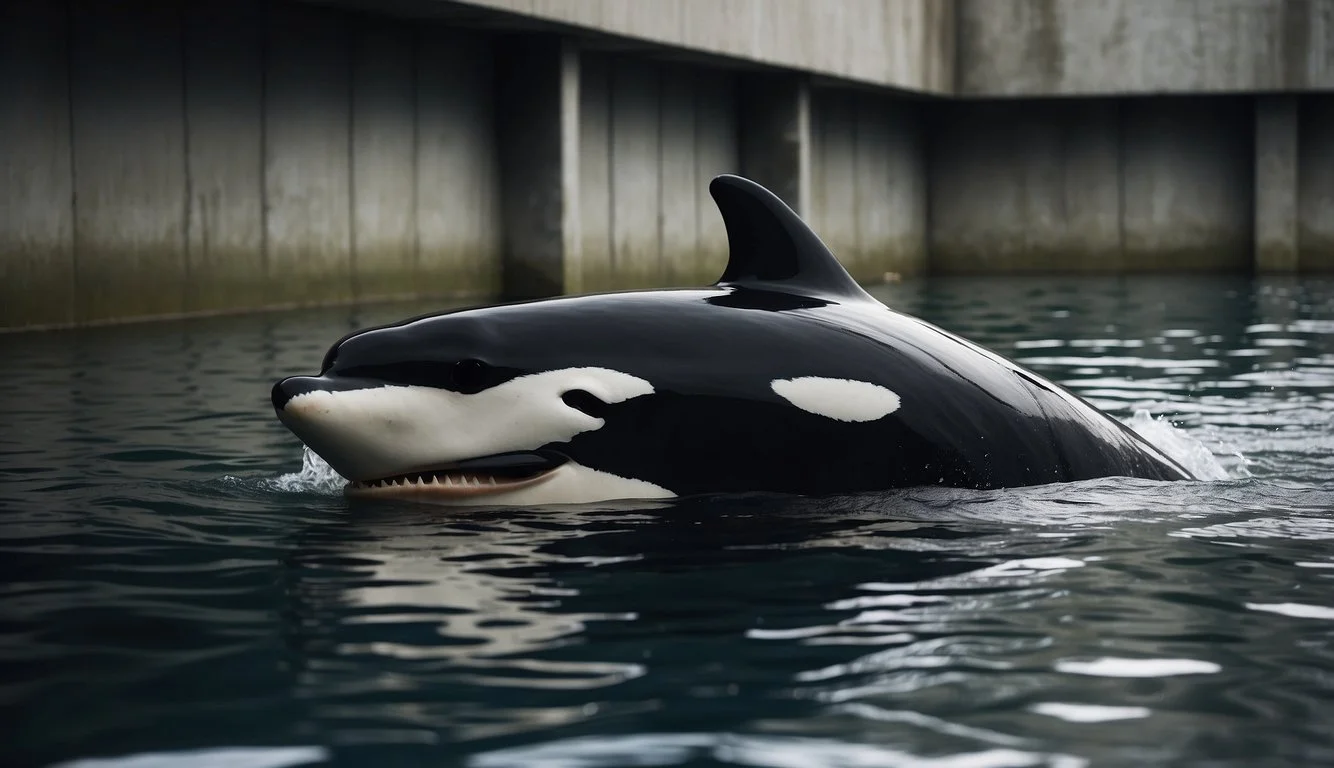Documentary Review: Blackfish (2013)
Analyzing SeaWorld's Controversy
Blackfish (2013), directed by Gabriela Cowperthwaite, offers a penetrating look into the disturbing reality of captive orcas. The documentary centers around the infamous orca Tilikum, who was involved in the deaths of three individuals, including a trainer at SeaWorld. By focusing on Tilikum's experiences, the film effectively highlights the ethical concerns and dangers of keeping orcas in captivity.
The documentary combines riveting accounts from former SeaWorld trainers and marine mammal experts, presenting a compelling case against the practice of breeding and using orcas for entertainment. Through chilling archival footage and interviews, viewers are exposed to the harsh conditions these majestic animals endure, evoking a strong emotional response.
Blackfish not only contributed to public outcry but also led to significant changes within SeaWorld. The film's impact is measurable, prompting the end of orca breeding programs and theatrical performances at SeaWorld parks. Watching Blackfish is essential for anyone interested in animal rights and corporate accountability in entertainment.
Background on 'Blackfish'
The documentary "Blackfish" explores the life of Tilikum, an orca held in captivity by SeaWorld, and the broader issue of keeping orcas in captivity. Its release fueled widespread debates on animal welfare.
Release and Reception
"Blackfish" premiered on January 19, 2013, at the Sundance Film Festival. Directed by Gabriela Cowperthwaite, the film was later distributed by Magnolia Pictures and CNN Films.
Critics acclaimed its compelling narrative and detailed exposé of marine parks. Rotten Tomatoes scores the documentary at 98%, demonstrating positive reception. The film's graphic portrayal of orcas' plight garnered significant media attention and public interest. Notably, "Blackfish" was nominated for the BAFTA Award for Best Documentary.
Director's Perspective
Gabriela Cowperthwaite directed "Blackfish" with the aim of shedding light on the complex and often harsh realities of orca captivity. Driven by an incident involving Tilikum, Cowperthwaite sought to explore the ethical concerns and long-term impacts of keeping intelligent marine mammals in confined environments.
Through interviews with former trainers, scientists, and marine experts, she crafted a narrative that questions the morality and safety of marine park practices. Her directorial approach blends emotional storytelling with factual investigation.
Cultural Impact
The release of "Blackfish" had profound cultural repercussions. It sparked conversations about the ethics of animal entertainment and led to a public outcry against marine parks. Formerly loyal patrons of SeaWorld began to question the treatment of their captive animals.
SeaWorld experienced a shift in public perception, facing protests and campaigns calling for the end of orca performances. Legislative changes also followed, with several regions moving to ban or restrict orca captivity.
The documentary's influence extended beyond the entertainment industry, prompting broader discussions about animal rights and welfare practices globally.
Synopsis of 'Blackfish'
"Blackfish" is a 2013 American documentary directed by Gabriela Cowperthwaite.
The film centers around Tilikum, an orca held at SeaWorld, and the broader controversy surrounding the captivity of orcas.
The story begins with Tilikum's capture and traces the harsh conditions and treatment he endured in marine parks.
The documentary highlights several incidents, including the deaths of trainers, emphasizing the danger these conditions pose to both humans and whales.
Through interviews with former trainers, marine biologists, and other experts, "Blackfish" presents a compelling argument against orca captivity.
It utilizes graphic footage and interviews to showcase the adverse effects on the whales' physical and psychological well-being.
Archival footage and testimonials reveal the contrast between the public image of marine parks and the reported realities behind the scenes.
The documentary also critiques organizations like SeaWorld, alleging negligence and lack of accountability.
"Blackfish" was premiered at the 2013 Sundance Film Festival and received widespread attention for its investigative approach and storytelling.
The film's impact extended beyond theaters, influencing public perception and policies regarding marine mammal captivity.
Analysis of the Documentary
"Blackfish" employs effective narrative techniques and impactful cinematography to present its critical view of orca captivity in marine parks. The documentary's approach ensures that the audience remains engaged and informed throughout.
Narrative Techniques
Gabriela Cowperthwaite's "Blackfish" utilizes a compelling mix of personal testimonies and archival footage to build its narrative. Interviews with former SeaWorld trainers and marine experts add a layer of authenticity. The story of Tilikum, the captive orca, is interwoven with these interviews, creating a poignant narrative arc.
The film also leverages emotional appeals by showcasing the bonds between orcas and their trainers. By focusing on individual stories, "Blackfish" makes the broader issue of animal captivity accessible and relatable. The documentary's structured arguments and clear progression keep the viewer engaged from start to finish.
Cinematography and Editing
The cinematography and editing of "Blackfish" play crucial roles in emphasizing its themes. Underwater footage of orcas in captivity juxtaposed with scenes of these creatures in the wild highlights the stark contrast between the two environments. The use of close-up shots of Tilikum fosters an intimate connection with the viewer, enhancing the emotional impact.
Expert interviews are interspersed with haunting images and video clips, creating a seamless narrative flow. The editing carefully builds tension and releases it at strategic points, maintaining a steady pacing that keeps viewers invested. The film's visual and auditory elements are designed to provoke a visceral response, deepening the audience's understanding of the issues at hand.
Subject Matter Examination
The 2013 documentary "Blackfish" delves into the harsh realities of orca captivity, the emotional and physical toll on both humans and animals, and the controversial practices of SeaWorld. The film aims to raise awareness about the multifaceted issues surrounding captive orcas.
Treatment of Orcas
"Blackfish" presents startling evidence on the detrimental effects of captivity on orcas. The film showcases instances of orcas being subjected to confined spaces and unnatural social structures. Orcas often suffer from collapsed dorsal fins, a condition rarely seen in the wild but common in captivity.
Moreover, the documentary highlights physical confrontations among orcas, which can result in severe injuries. Emotional distress is another focal point, with orcas displaying signs of neurosis due to the restricted environment. These conditions, as documented, lead to shortened lifespans and greater health issues compared to their wild counterparts.
Human and Animal Relationships
The film examines the complex emotional connections between orcas and their trainers. Trainers often develop deep bonds with the orcas, despite the dangerous nature of these relationships. The documentary highlights tragic incidents where trainers were injured or killed, pointing to the unpredictability and potential aggression in captive orcas.
Interviews with former trainers provide firsthand accounts of their experiences, shedding light on the ethical dilemmas they faced. Some trainers expressed guilt and remorse for participating in what they later viewed as exploitation. This section underscores the emotional toll on both the animals and their human caretakers.
SeaWorld's Response
SeaWorld is portrayed as a central figure responsible for the orcas' plight. The documentary reveals the company's practices, such as the separation of calf from mother, which is deeply traumatizing for both animals. SeaWorld's public relations tactics are scrutinized, showing how the company tried to manage its image post-documentary.
The film also includes SeaWorld's official responses, where they deny many of the claims and emphasize their conservation efforts. Despite these denials, the documentary presents evidence and testimonials that challenge the company's narrative. This section captures SeaWorld's struggle to justify its practices in the face of growing public scrutiny.
Public and Critical Response
"Blackfish" ignited widespread public debate and received significant attention from various quarters. It sparked activism, garnered extensive media coverage, and prompted reactions from the scientific community.
Advocacy and Activism
The release of "Blackfish" played a pivotal role in amplifying advocacy for orca welfare. Many animal rights organizations embraced the film, using it as a tool to campaign against the captivity of marine mammals. This led to increased public awareness and support for legislative changes aimed at protecting orcas and other marine wildlife.
Prominent celebrities and activists voiced their support, further pushing the agenda into the mainstream. This surge in activism resulted in protests outside SeaWorld locations and heightened scrutiny of their practices.
Media Coverage
Media outlets globally picked up on the debate surrounding "Blackfish," leading to extensive coverage and discussions. The documentary was reviewed by major publications such as The New York Times and received critical acclaim for its impactful storytelling.
Rotten Tomatoes reported a high approval rating, reflecting the film's strong reception among critics. The widespread media coverage ensured "Blackfish" reached a broad audience, keeping the conversation alive and relevant long after its release.
Scientific Community Feedback
The scientific community's response to "Blackfish" was mixed. Some marine biologists praised the documentary for bringing critical issues to light, emphasizing the physical and psychological impacts of captivity on orcas.
However, others criticized it for potentially oversimplifying or misrepresenting complex scientific data. Despite this, "Blackfish" prompted further research and dialogue within the scientific community, contributing to a deeper understanding of orca welfare and the ethical implications of marine mammal captivity.
Legacy of 'Blackfish'
The documentary Blackfish, directed by Gabriela Cowperthwaite, significantly impacted public perception of orca captivity.
The film focuses on Tilikum, an orca held by SeaWorld, and highlights the broader issues of orca captivity and their treatment. Premiering at the Sundance Film Festival in 2013, the film gained widespread attention, sparking intense debates about marine mammal captivity.
One of the most notable outcomes was SeaWorld's commitment to phasing out its orca breeding and performance programs. This decision marked a significant shift in how the entertainment industry considers the ethics of animal performances.
Blackfish influenced legislative action. Several regions pushed for stricter regulations on marine mammal captivity, reflecting growing concerns about animal welfare in entertainment.
Critically acclaimed, the documentary received a 98% score on Rotten Tomatoes. It was praised by reviewers for its compelling narrative and eye-opening revelations, setting a standard for impactful documentary filmmaking.
The cultural impact of Blackfish extended beyond policies and regulations. It ignited conversations about animal rights and ethical treatment, raising awareness among the general public and advocating for more humane practices.
SeaWorld's visitor numbers and stock prices were reportedly affected, demonstrating the documentary's tangible impact on corporate practices and public opinion.
For many, Blackfish remains a powerful example of how documentary filmmaking can drive social change. Through its emotional and factual storytelling, the film left an indelible mark on the debate over the ethics of animal captivity.
Conclusion
"Blackfish" showcases the harsh realities of keeping killer whales in captivity. The film's impact extends beyond the screen, prompting viewers to reflect on the ethics of marine animal entertainment.
With compelling interviews and disturbing footage, the documentary challenges the practices of institutions like SeaWorld. Many were left questioning the treatment of these majestic animals.
The film achieved significant acclaim, including a 98% score on Rotten Tomatoes, highlighting its success in reaching a broad audience. Critics praised its narrative and eye-opening revelations. "Blackfish" is not just a film—it’s a call to action.



